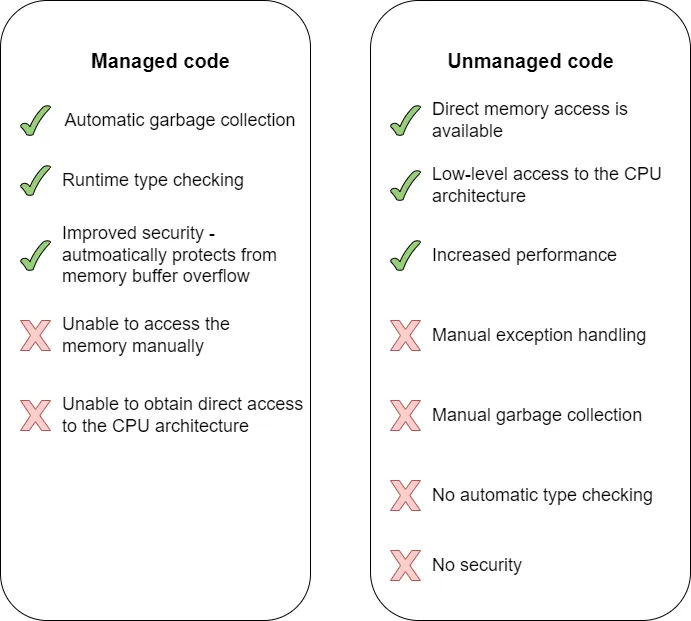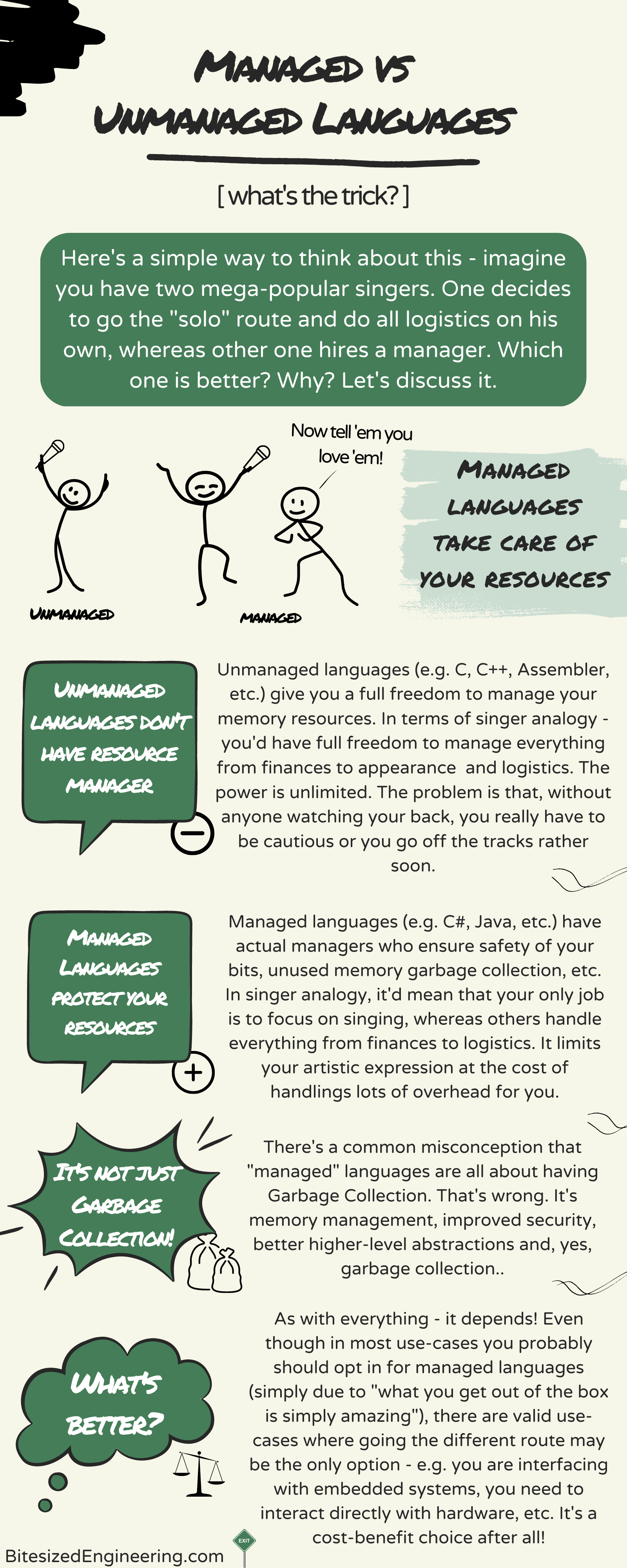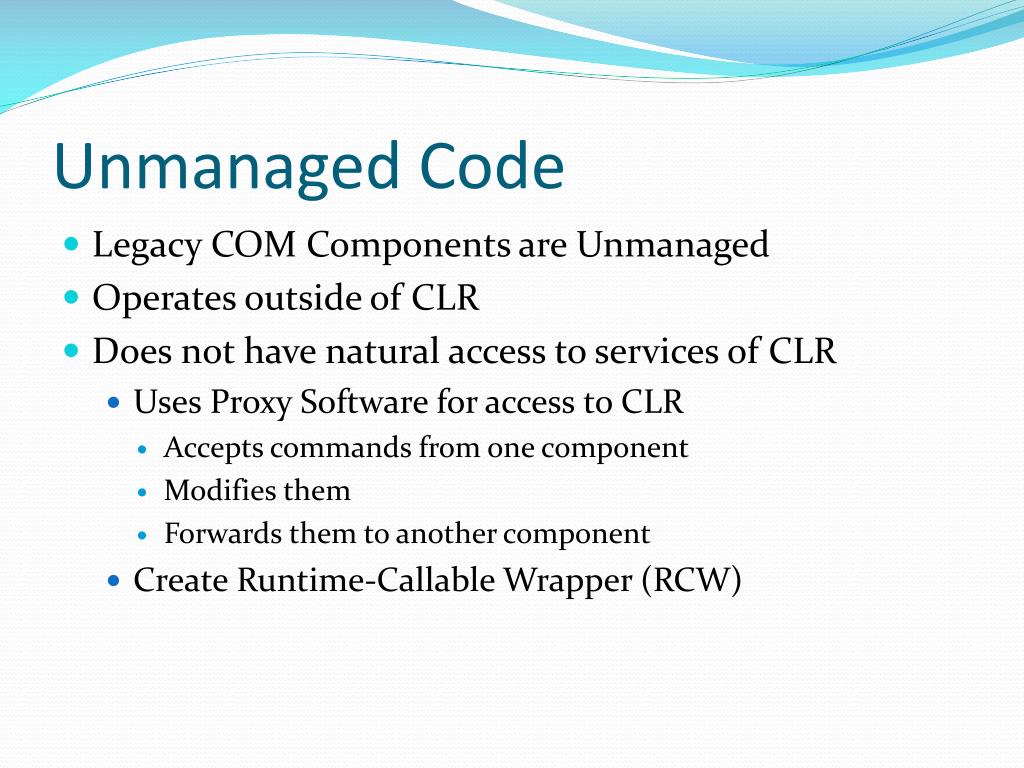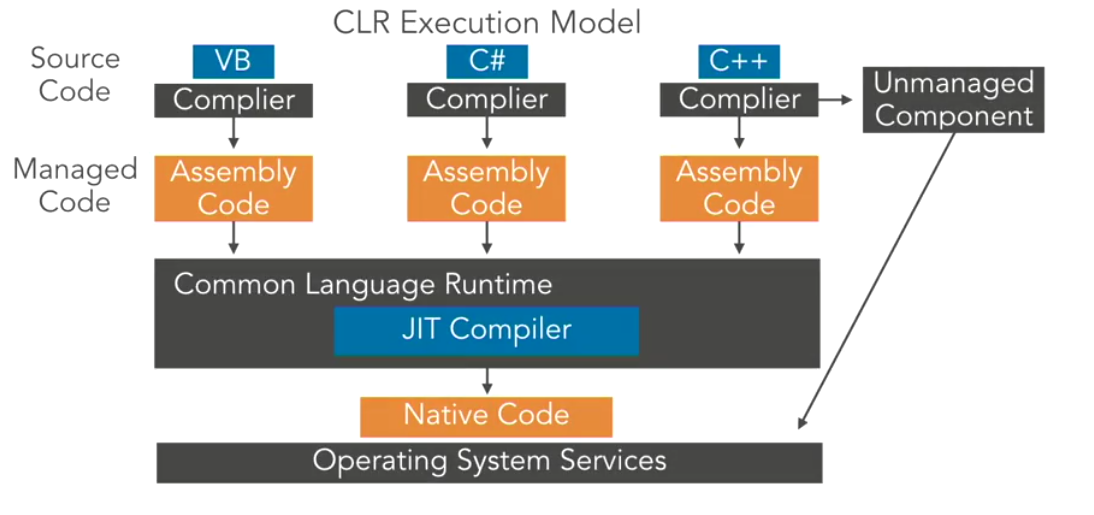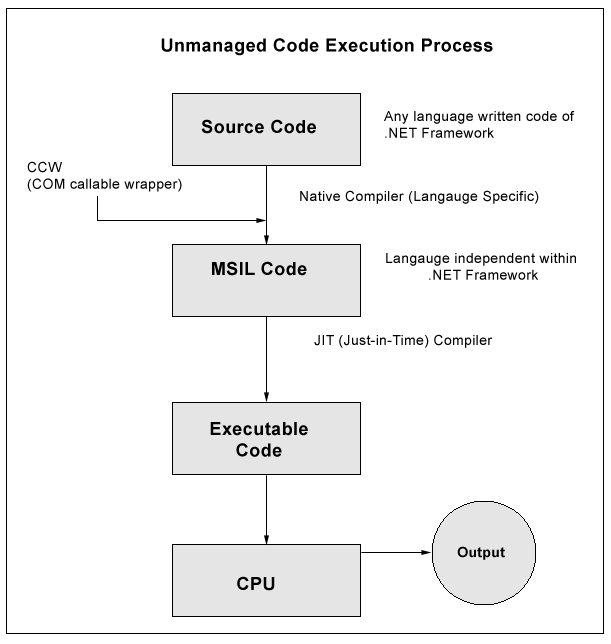Inspirating Info About How To Write Unmanaged Code And Identify Whether The Is Managed

Understand the key differences between managed and unmanaged.
How to write unmanaged code and how to identify whether the code is managed unmanaged. The.net framework supports 2 types of code: Managed code is the code which is managed by the clr (common language runtime) in.net framework. Managed code(s) are programs built using the common language runtime (clr) and follow the rules of the common type system in defining classes, methods,.
In other words, it is. Find out how to apply managed and unmanaged code best practices while skillfully mitigating risks. In managed code everything is type safe (as the compiler won't let you.
This article explains what managed code means and provides additional information. If you want a good overview of how.net interoperates with unmanaged code, you could start with an overview of managed/unmanaged code interoperability. Table of contents.
To identify whether the code is managed or not. The code is developed using the common language runtime (clr) of the.net framework is known as managed code. Whereas the unmanaged code is the code.
Managed code is.net code (vb.net, c# etc.) that you write and compile to.net cil. Managed code is written with the aim. Home c# using unmanage code in c# by codeguru staff.
To spot unmanaged code just disallow unsafe code in each project and see what compiles. Describes marshalling for com interop and platform invoke. Unmanaged code is code that is not under.net that compiles to direct.
When working with.net, you'll often encounter the term managed code. You can write unmanaged code in any non.net microsoft languages like vb6, vc++6, c++. The first thing you should understanind is why you.
If you are writing an application in visual c++.net you can produce managed code if you like, but it's optional. In unsafe or unmanaged code the unsafe modifier is used to write the block of code while any other code written outside the unsafe code block is managed code.

